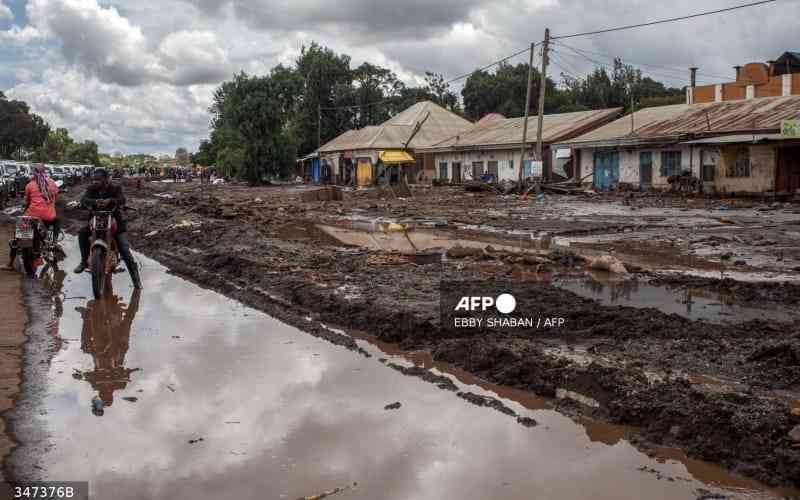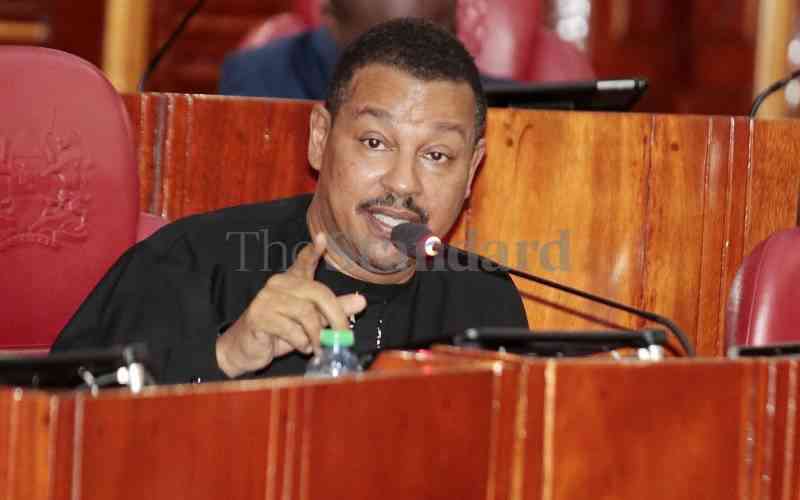Kenya: Anxiety has seen majority of Kenyans shun blood donation at the detriment of those in need.
Many who willingly respond to blood donations, often do so to save the life of loved ones such as parents, children and spouses.
But for one man, fear of losing a life in avoidable circumstances has seen him continuously respond to blood donation appeals.
Alpha Sanya is reported to be the highest blood donor in the country — he has donated blood a record of 75 times, according to Kenya National Blood Transfusion Service (KNBTS) data. The second highest donor has donated 30 times.
Mr Sanya says he began donating blood 30 years ago as a Form Three in Pumwani Secondary School.
“I hate death... People should not die for lack of blood yet we all have blood which can help one live,” says Sanya.
He says what started him off to blood donation was thirst for what he saw fellow students given whenever they donated blood.
One of my classmates informed me there was free soda, but going for it I was informed by Red Cross officers that it was meant for those who donated blood,” he recalls with laughter.
He says after some encouragement from the officers and his biology teacher, he volunteered.
“Though my main interest was receiving a drink, I was glad my blood could save strangers from any corner of the country,” recalls the father of two.
Since then, the children’s court and Nakuru County prosecutor developed a culture that has seen him religiously volunteer to donate blood every April, August and December.
“I never know beneficiaries of my blood apart from 2001, when I was picked from work to donate blood to a boy after undergoing an operation,” he adds. The number of accidents Sanya witnesses while heading to work from Gilgil pricks his heart.
“I see people gasp their last breath and all I can do is continue volunteering,” he observes.
On June 14, his actions earned him a memento from First Lady Margaret Kenyatta during the World Donor Day celebrations. Despite Kenyans lacking a blood donation culture, Sanya says the challenge can be overcome through introduction of blood donation trainings in primary and secondary schools.
“People can only develop a culture at an early age where they grow knowing the importance of having enough blood and keeping blood clean,” he adds.
Stay informed. Subscribe to our newsletter
His wife, children, friends, family and colleagues have emulated him.
“I organise seminars at my church, home and workplace where I teach people the importance of donating blood. I wonder why people fear donating blood yet blood is regained 24 hours after donation,” he observes.
He says donating blood has enabled him live a faithful life with Rose, his wife of 20 years. “This culture has enabled me be morally upright because to donate blood, it has to be clean,” he says.
Sanya says eating healthy foods that build production of red blood cells is important for one to be able to donate blood regularly.
“Donors should ensure they take balanced diet to boost their blood formation. For instance, I take green leafy vegetables, green grams, fish, mushrooms, fruits and fresh water,” he says.
In addition, he says he receives free blood scanning during donation, a service that costs more than Sh20,000 in hospitals.
He believes leaders should also popularise blood donation by possibly organising sporting activities with blood donation themes.
“Sourcing for blood after an emergency has many their lives because of delays in receiving from well-wishers,” says KNBTS director Margaret Odour.
She says the Ministry of Health and KNBT are also working on strategies of how to link with county governments to reach remote areas where people cannot access the six regional blood transfusion centres in Eldoret, Nakuru, Kisumu, Mombasa, Nairobi and Embu.
“In terms of emergency, it is easy to receive services at the nearest transfusion centre with ready blood. Strategies of ensuring the process run smoothly are being worked on,” says Ms Odour.
She says there is enough capacity to store donated blood in the country and there has never been any time blood has been discarded.
Last year, the KNBT banks received only 160,000 units of blood against the required amount of 400,000 annually.
 The Standard Group Plc is a
multi-media organization with investments in media platforms spanning newspaper
print operations, television, radio broadcasting, digital and online services. The
Standard Group is recognized as a leading multi-media house in Kenya with a key
influence in matters of national and international interest.
The Standard Group Plc is a
multi-media organization with investments in media platforms spanning newspaper
print operations, television, radio broadcasting, digital and online services. The
Standard Group is recognized as a leading multi-media house in Kenya with a key
influence in matters of national and international interest.
 The Standard Group Plc is a
multi-media organization with investments in media platforms spanning newspaper
print operations, television, radio broadcasting, digital and online services. The
Standard Group is recognized as a leading multi-media house in Kenya with a key
influence in matters of national and international interest.
The Standard Group Plc is a
multi-media organization with investments in media platforms spanning newspaper
print operations, television, radio broadcasting, digital and online services. The
Standard Group is recognized as a leading multi-media house in Kenya with a key
influence in matters of national and international interest.







